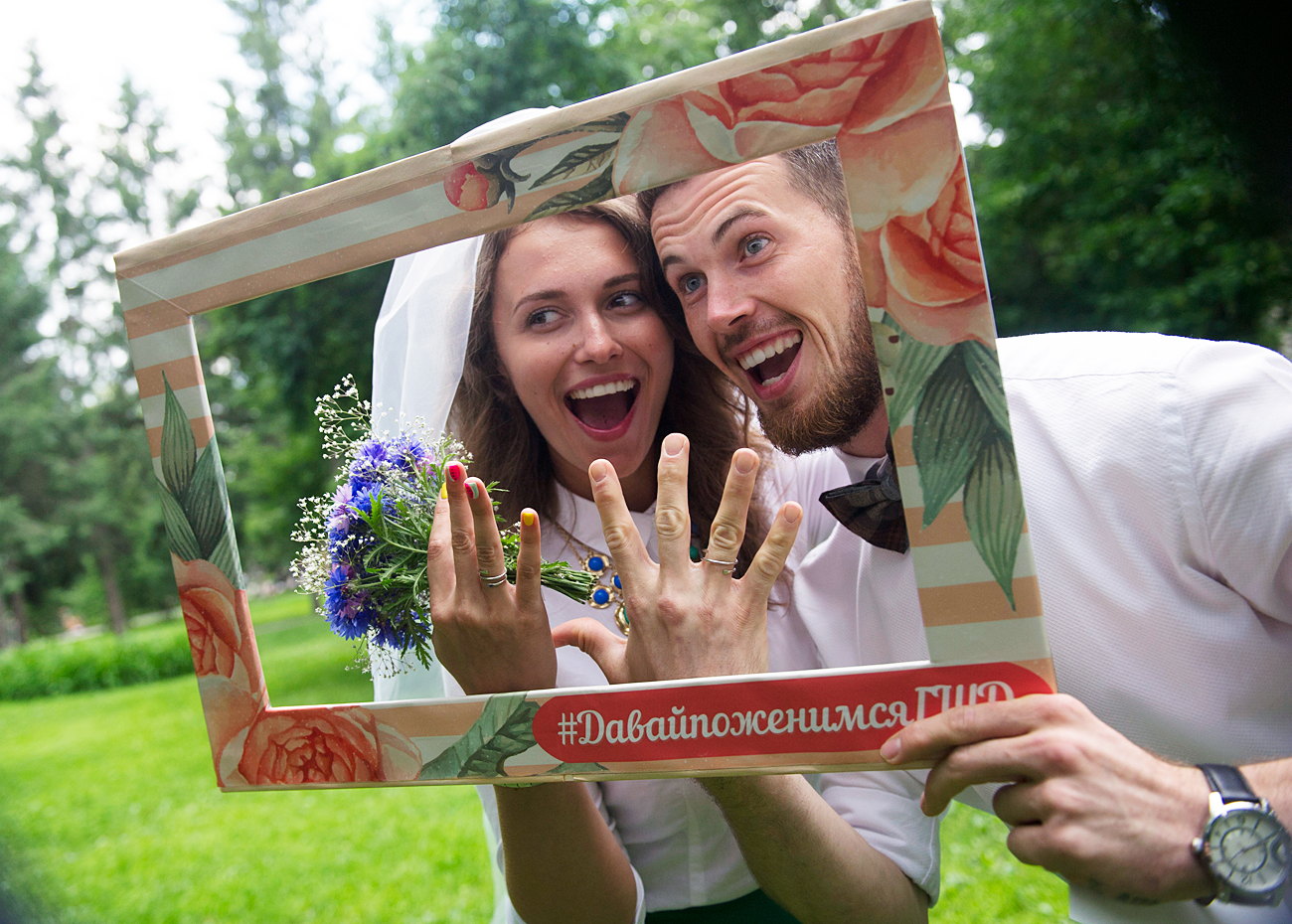Want to marry a Russian? This is how you go about it

The Russians may have an uneasy reputation in the West, but they have a reputation for being romantic.
Kirill Kukhmar/TASSDespite changing attitudes in the West, many foreign men continue to dream of a Russian wife: A Google search for "marry Russian bride" returns more than two million results. And while it’s usually the case that Russian-foreigner marriages involve a Russian woman and a foreign man, there are also plenty of cases in which a foreign woman takes a Russian husband.
The Russians may have an uneasy reputation in the West, but they have a reputation for being romantic. However, if a couple that set their hearts on tying the knot don’t make sure they understand all the ins and outs of the necessary paperwork, bureaucratic fuss will overshadow all the romance.
Where are you going to get married?
First you need to decide where you will register your relationship. In Russia or in your country? In the latter case, the marriage is concluded under the laws of this country, and each state has its own rules.
"I got married in Turkey," says Russian woman Maria, who was married to a Turk. "They did not want to register us for a couple of months and bounced us from one office to another, even though we had the necessary papers. A bureaucratic circus. They suggested changing religion, constantly forced us to pay money."
"In Finland, the whole process took no longer than a month," says Alexei, a Russian national who was married for several years to a Finnish woman. "But we got married in a church, so I had to go back to Russia, to the church where I was baptized. I took a certificate there [showing] that I am a Christian."
But if you do marry in Russia, what documents do you need?
Collecting a set of documents
Latvian national Sofia first met her future fiancé, Vitaly, on medieval fantasy forums when she was 14.
"I fell in love so deeply that I memorized his messages by heart," she said. They managed to see each other for the first time four years later. The transformation of a virtual romance into a real one was hampered by many things: studies, work, visas and her fiancé's army service. Sofia and Vitaly have got engaged and agreed on the wedding only now, after another four years.
 Source: Personal archive
Source: Personal archive
"I hope to deal with the formalities in a couple of weeks, and get married in a month or two," says Sofia. First of all, she – and everyone who is going to marry in Russia – needs, of course, a visa. It does not matter whether it is a tourist, business or labor one. The main thing is just to be able to enter the country.
In Latvia, Sofia needs to get a certificate of marital status – polygamy and polyandry are prohibited in Russia. And if a foreigner who was previously married wants to get married in Russia, they will have to prove their single status with one more piece of paper – a divorce certificate or spouse’s death certificate.
Citizens of the CIS, Baltic states and some other countries do not need to obtain an apostille (a certification for authenticating documents for use in foreign countries) for their documents. But if your state does not have such an agreement with Russia, the papers (except for the passport) will have to be legalized. Now it's time to go to Russia.
In Russia, Sofia should first of all register her visa at her place of residence. The easiest way to do this is to stay at a hotel – hotels take care of registration of foreigners. But if she decides to live with her fiancé from the start, then both of them have to stand in line at the Federal Migration Service's office.
Once registered, you can go looking for a Russian notary. You need to translate and notarize all the documents (including a copy of the passport, which should also be made by a lawyer).
The papers are ready, what's next?
If you get this far, the hardest part is behind you and you are at the finish line. Go to the registry office. In different cities, different branches work with foreigners. In Moscow, it is Wedding Palace No. 4. There you will get a bank account number to pay a state duty, which is 350 rubles ($5.5).
With all the documents and a duty payment receipt, the tired couple crawls back to the register office and fills out a marriage application. Now at last you can choose the wedding day, the minimum waiting period being a month. Tip: If you are getting married in the summer, submit an application in advance. In the middle of the year, registry offices are packed to capacity, so there is a risk of having to wait much longer than planned.
If the world does not suddenly end during this month, then congratulations, you are now married. But before you forget the bureaucracy like a bad dream, it is worthwhile obtaining a Russian apostille on the marriage certificate – if you're going to return to your homeland with your spouse.
Subscribe to get the hand picked best stories every week
All rights reserved by Rossiyskaya Gazeta.
Subscribe
to our newsletter!
Get the week's best stories straight to your inbox
